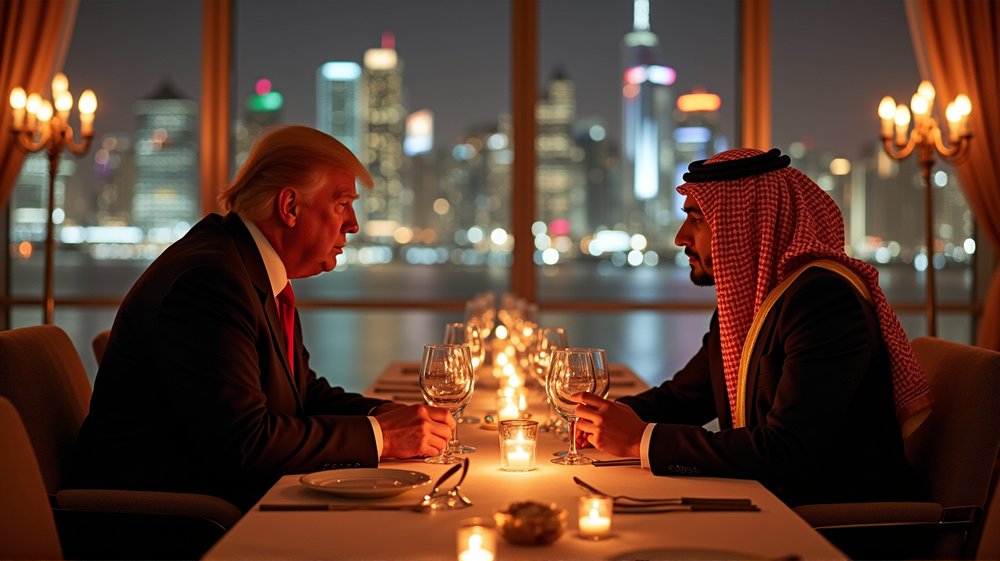Setting the Stage for a High-Stakes Dinner
In what promises to be a critical encounter, U.S. President Donald Trump has scheduled a dinner meeting with Qatari Prime Minister Sheikh Mohammed bin Abdulrahman al-Thani in New York. This engagement follows closely on the heels of a recent Israeli assault targeting Hamas leaders in Doha, an act that has set the Middle Eastern diplomatic scene ablaze with controversy. The dinner, attended by U.S. special envoy Steve Witkoff, marks an important juncture in U.S.-Qatari relations, emphasizing Washington’s intent to pacify escalating tensions after the Israeli strike.
The Ripple Effect of Israeli Actions
The attempt by Israel to neutralize Hamas leadership through surgical strikes in Qatar has not only jeopardized ongoing peace efforts but also put U.S. diplomacy under strain. Condemnations have poured in from across the globe as this strike risks unhinging delicate truce negotiations in the already volatile Gaza region. According to Reuters, this move could potentially derail years of clandestine diplomatic overtures aimed at achieving a sustainable resolution to the conflict embroiling Israel and the Palestinian territories.
Trump’s Diplomatic Balancing Act
During a phone call with Israeli Prime Minister Benjamin Netanyahu, Trump openly expressed his dissatisfaction with Israel’s unilateral actions, suggesting such measures do not align with U.S. strategic interests. This conversation underscores Trump’s diplomacy-first approach, as he reassures Qatar of the U.S.’s commitment to preventing future escalations that could further erode regional stability. Trump’s move signals an effort to salvage Qatar’s role as a central mediator in negotiating a truce and eventual reconciliation between Israel and Hamas.
Qatar’s Role and Reactions
Qatar’s stance, as articulated by PM al-Thani, reinforces its unwavering commitment to mediating peace, despite perceiving Israel’s most recent strike as an attempt to disrupt potential ceasefire talks. Qatar’s diplomatic channel remains active, with hopes pinned on their ability to broker a lasting peace despite the fresh impediments posed by recent events. The country continues to reject any provocation that aims to undermine its long-standing role as a Gulf ally in Middle Eastern peace negotiations.
The Humanitarian Crisis Unfolds
Amidst political machinations, the human toll of Israeli strikes cannot be overlooked. Reports from Palestinian health officials indicate a staggering death toll exceeding 64,000 due to Gaza’s relentless bombardment, exacerbating an already dire humanitarian situation marked by widespread displacement and dire food shortages. This humanitarian catastrophe has sparked debates about the ethics of these military actions, with some experts equating Israel’s offensive to genocide.
Moving Forward: Diplomatic Horizon
While the implications of this dinner are yet to unfold fully, it marks a crucial step towards reconciling differences and setting a new diplomatic course. The dinner serves not just as a meeting over meals but as a platform to strengthen dialogue and establish a renewed commitment to peace, amid escalating strains in a region that rests at the heart of global geopolitics.
As events continue to evolve, the Trump-Qatar meeting could be pivotal in shaping future geopolitical alignments, reflecting broader strategic shifts that could dictate the Middle East’s future landscape.












